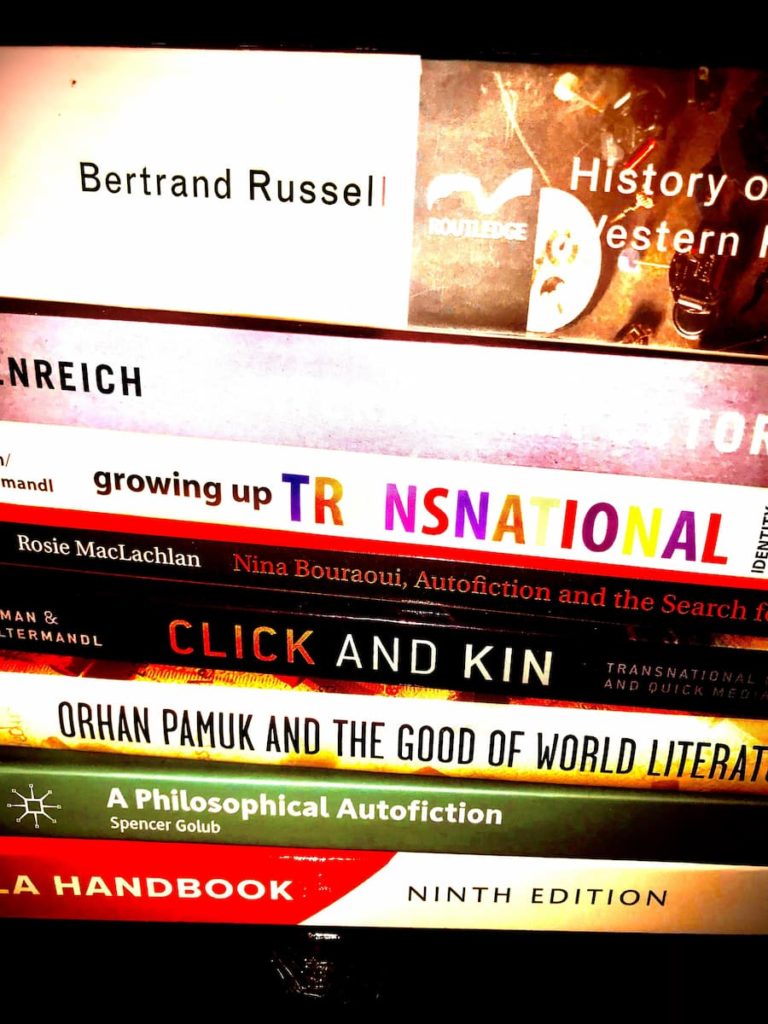Literary theory or literary criticism can be hard to understand at the best of times. It’s frequently written in complex language, and addresses some of the most complex and challenging ideas around. So how do you even get started with this field?
The best place to begin with literary theory is with glossaries, introductions to literary theory, Wikipedia, Living Online Handbooks, and good old traditional textbooks. Below we go into more detail about each of these avenues, and give points about how to get started!

Are Glossaries Good Sources of Information?
Glossaries provide the most easy to access information on literary theory. The rest of the books on this list are purpose built guides to literary theory. Want super sharp summaries of concepts and movements to wrap your head around things quickly? See a glossary.
Glossaries provide the most condensed form of summary possible – the art of the glossary is the art of brevity. Perfect for avoiding waffle. Check out “A Glossary of Literary Terms” by M.H. Abrams.
Literary Theory: A Very Short Introduction
This very short book by Jonathan Culler often appears on high school reading lists, and is also a great option for the time poor budding literary theorist. This book does exactly what it says on the tin. It’s an excellent place to start and very accessible.
Is Wikipedia Useful for Literary Criticism?
Wikipedia may not be where your academic investigations finish, but they’re a great place to get started. Students were once advised not to depend on things that appear online because they have no validity. But actually Wikipedia is a very reliable source these days.
If you’re working on a piece of serious literary criticism or something that is being assessed by an institution, definitely only use wiki as a point of departure. Verify all facts elsewhere, but dive in here for hours of free entertainment courtesy of Jimmy Wales.
What is a Living Online Handbook?
Check out this living online handbook of Narratology: https://www.lhn.uni-hamburg.de/contents.html There are authoritative sources that are available online, which are often updated more frequently than print books, or even e-books.
This site is called ‘living’ because it is updated on the reg, and encourages commentary from its users, which may influence its contents. Not all online sources are unquotable. Check the credentials of the authors.
Are There Textbooks on Literary Criticism?
Ultimately, the most authoritative sources, and the ones you want to be quoting from to secure your HD, or land your review in a reputable newspaper, are the old school textbooks like Terry Eagleton’s “Literary Theory: an introduction”.
This text rocked the literary world with Eagleton’s trademark wit and cynicism, and charted the growth of the literary theory in the academy, and the challenges it has faced. Other excellent textbooks include titles like “The Norton Anthology of Literary Criticism”. It’s a weighty monsters, but there’s a thirty page intro that gives a concise overview of things!
Is Literary Theory Hard?
Literary theory is hard, yes. It’s a field that prides itself on digging beneath the surface level of literature to reveal the philosophical and political machinations at work in written works. It’s often generated in universities by some of the world’s leading thinkers, so it gets tricky to follow.
However, don’t like that put you off. Plenty of literary theory is written in plain language, and once you get the hang of it reading literary theory can be really enjoyable!
I Don’t Understand Literary Theory
It’s fine not to understand literary theory at first. It’s very complicated and relies on a lot of prior knowledge in most cases. Once you are familiar with the underlying philosophical and literary traditions that the theorists are referencing, everything will become much clearer.
Is Literary Theory Useful?
Literary theory is useful to society, as it often contributes to social movements which are known as progressive. Literary theory can intersect with theories of oppression, to show us how people are marginalised or excluded, for example.
It can teach us to appreciate the true intellectual and emotional depth that written works can attain, and the techniques and psychological pathways by which those effects are generated.
On a practical note, it can lead to be better communication skills, and critical thinking ability. Many people believe an advanced understanding of literary texts increases empathy.
How do I Study Literary Theory?
You can study literary theory through a course such as at school or university, and you can also teach yourself literary theory. If you are teaching yourself, consider starting with the resources which are outlined at the beginning of this article.
Is Criticism Always Negative?
Criticism is not always negative. The word critic has two different meanings. It can mean someone who expresses negative opinions, and it can also mean someone who evaluates the merits of a written work. Literary critics evaluate the work, rather than simply finding its flaws.
Is Literary Criticism and Literary Analysis the Same?
Literary criticism and literary analysis are the same thing. They both involve interpreting a text, bringing a reader’s attention to the elements that the critic or analyst believes are the most pertinent to understand the text and its context.
What are the Current Trends in Literary Theory?
To best understand the current trends in literary theory you should start by examining the resources mentioned at the top of this article. No one person can pithily summarise the current trends in literary theory. Such a summary will always be contested.
There will always be people who try to conduct a literature review of a field to summarise the position of that field, but ultimately in a field that is so subjective, and so political, you must read as widely as possible and make your own summary of the trends in literary theory.
We hope these resources have been helpful and that your study of literary theory is enjoyable and rewarding, and leads you down whichever path you hope to follow.

